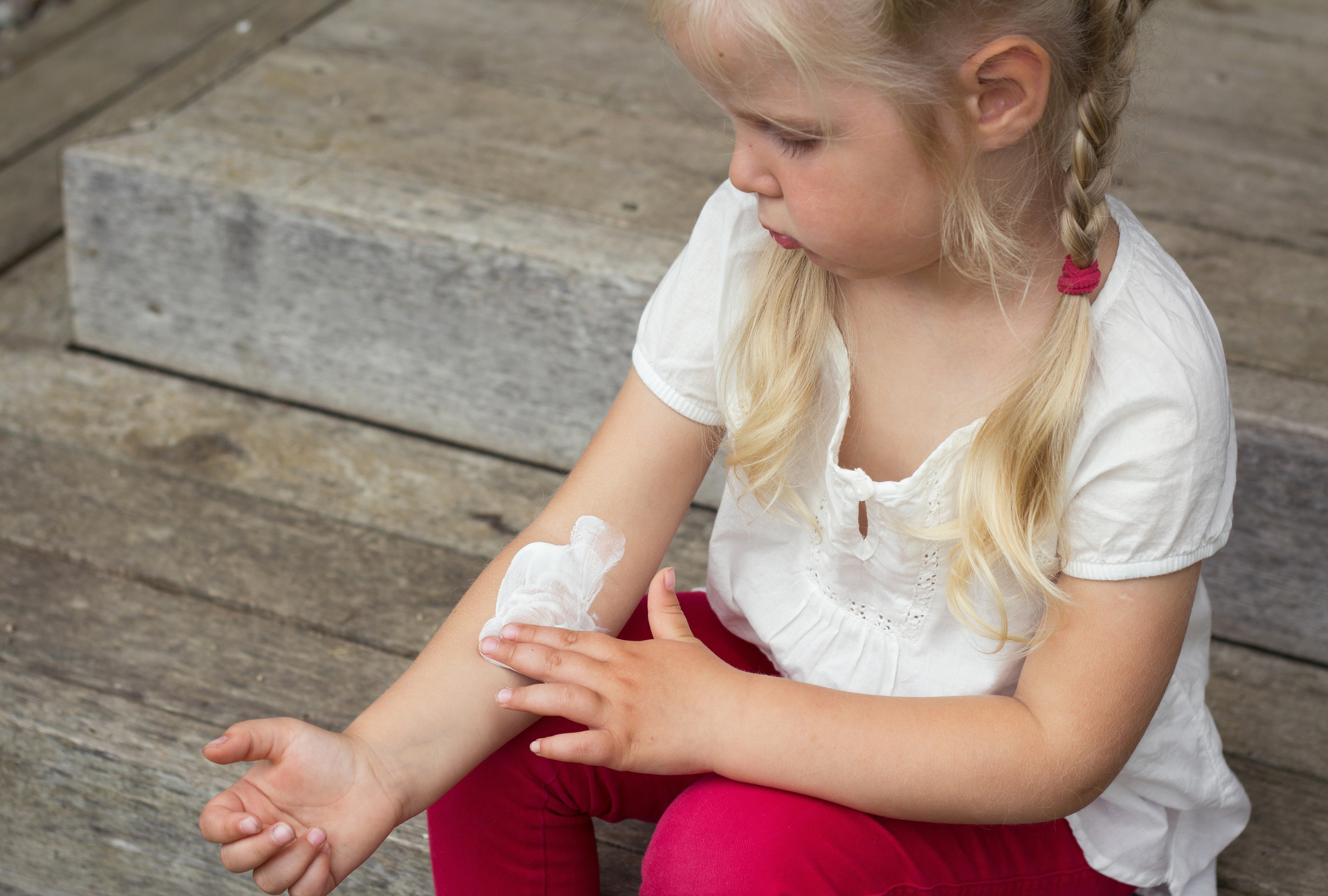Add some patience — it takes time to see improvement from eczema.
“Stop scratching!” I said for the umpteenth time. “But it itches!!” he said pleadingly, “and it’s not going away!” This back-and-forth occurs at least 20 times every day in my home because my oldest child has fairly severe eczema.
Eczema, otherwise known as atopic dermatitis, is a condition that is fairly common in children, occurring in up to 11 to 20 percent of them. It is characterized by dry, intensely itchy skin. The skin can be sensitive to a variety of triggers, which can include temperature, sweat, various fabrics, foods, perfumes and stress. Oftentimes, it is seen as part of the “allergic triad,” which includes asthma and allergic rhinitis, and many children have a family history of it. The good news is that most children will outgrow it before adulthood and there are treatments for eczema in the meantime.
Some mainstays of eczema treatment are as follows:
- Avoid known triggers.
- Keep nails short and clean.
- Take short baths in luke-warm water.
- Moisturize. Emollients (oil-based formulas) are superior to lotions (water-based ones).
- Apply topical steroids for particularly problematic areas.
- Try newer medications, called immunomodulating agents, which can provide eczema relief in more severe cases.
Some consequences that can occur:
- Superinfection. This occurs when a break in the skin caused by scratching leads to a skin infection. If it is minor, it can sometimes be treated with topical antibiotics but usually systemic ones are required.
- Rarely, herpes superinfection can occur, commonly on the fingers, and this requires systemic antiviral therapy.
- Changes in the skin’s overall appearance. The term “lichenification” means “leathery, thickened appearance” and can occur as a result of rubbing and friction over time.
- Scarring from repetitive trauma to the skin.
- Problems with sleeping from constant itching.
- There is new research that children with eczema are more likely to suffer from depression and anxiety compared with their peers.
Most times eczema can be treated by your pediatrician, but some cases are best evaluated and treated by a dermatologist. Be patient with both yourself and your child. This disease can have a somewhat chronic course and it takes time to see improvement, no matter what treatments you are using.
This post was written by Maya Neeley, M.D., a board-certified pediatrician specializing in hospital medicine at Monroe Carell Jr. Children’s Hospital at Vanderbilt. She adores her husband and four young boys and loves spending time with family and good friends.


Vanderbilt’s Children’s After-Hours Clinics offer the convenience of a walk-in clinic with care provided by a board-certified pediatrician from Children’s Hospital. No appointment is necessary, but we recommend calling your pediatrician first. Learn more about services and find locations for Children’s Hospital After Hours Clinic locations.

